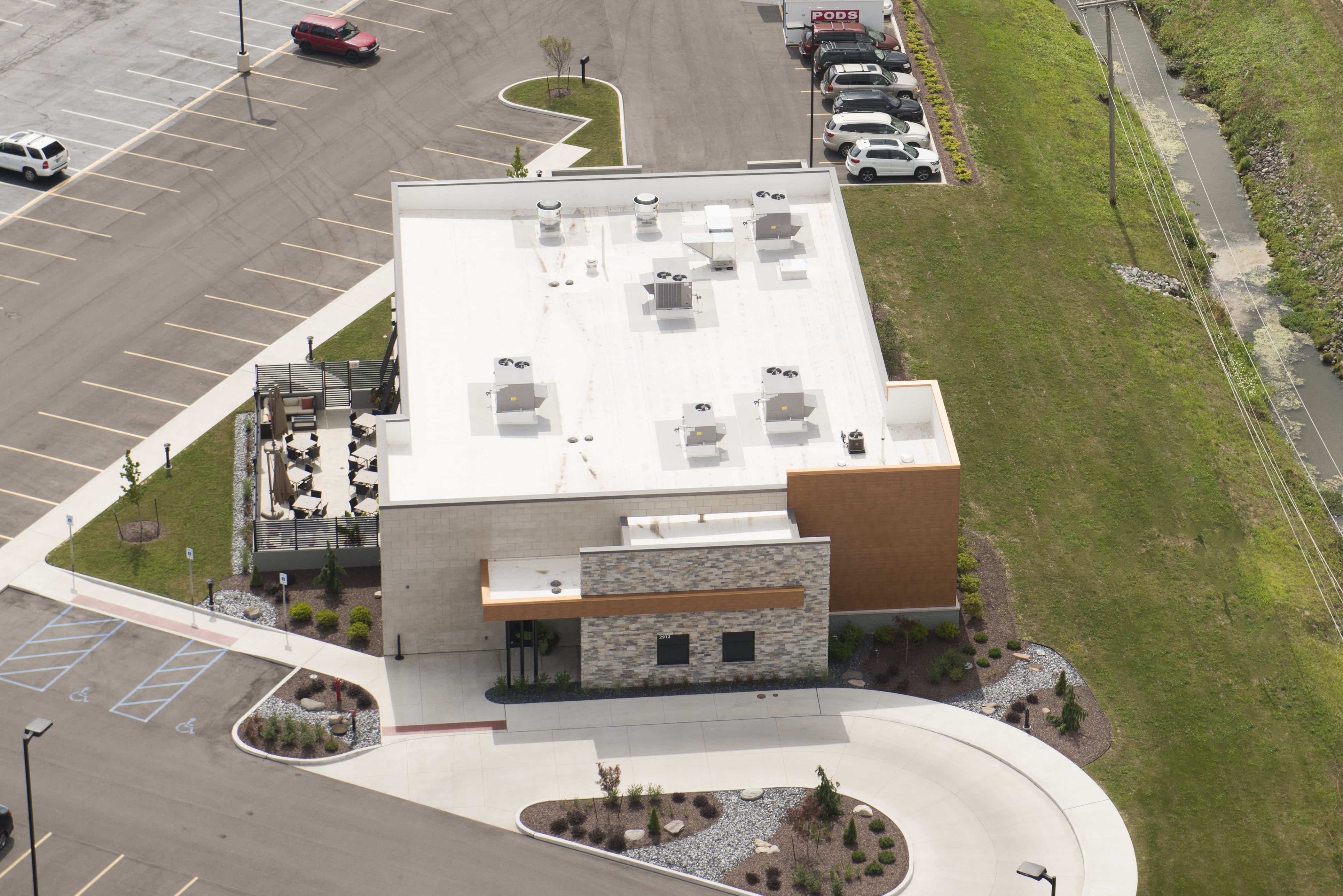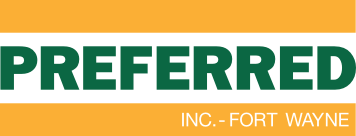When it comes to roofing your industrial building, selecting the right material is important for both longevity and performance. The choice should be based on various factors, including the building's specific needs, climate, and budget constraints.

Metal Roofing
Industrial metal roofing has gained significant popularity in recent years due to its durability, energy efficiency, and low maintenance requirements. It's available in various materials, such as steel, aluminum, and copper, each with its own unique advantages.
Materials
- Steel: Known for its strength and affordability, steel roofing is a versatile option suitable for a wide range of industrial applications.
- Aluminum: Lightweight and corrosion-resistant, aluminum roofing is an excellent choice for coastal areas or regions with high humidity.
- Copper: Offering a classic aesthetic and exceptional longevity, copper roofing is a premium option often used for historic or high-end industrial buildings.
Advantages
- Durability: Metal roofs are known for their longevity and durability, often lasting several decades.
- Energy efficiency: Reflective coatings can help reduce heat absorption, leading to lower energy costs.
- Low maintenance: Metal roofs require minimal upkeep, such as periodic inspections and cleaning.
- Aesthetically pleasing: A variety of finishes and profiles are available to suit different aesthetic preferences.
Disadvantages
- Initial cost: Metal roofing can be more expensive upfront compared to some other options.
- Noise: Metal roofs can be noisy during heavy rain or hail.
- Expansion and contraction: Seams can become a maintenance item due to building movement.
Best suited for: Industrial buildings in areas with extreme weather conditions, such as high winds, heavy snow, or hail.
TPO (Thermoplastic Polyolefin) Roofing
Industrial Thermoplastic Polyolefin (TPO) roofing is a single-ply membrane system that's highly durable and resistant to punctures, tears, and chemicals. It's a popular choice for industrial buildings due to its flexibility, energy efficiency, and low maintenance requirements.
Advantages
- Cost-effective: TPO is a relatively affordable roofing option.
- Excellent durability: TPO membranes are resistant to punctures, tears, and weathering.
- Low maintenance: TPO requires minimal maintenance, reducing long-term costs.
- Energy efficient: TPO membranes can be white or light-colored to be reflective, helping to reduce heat absorption.
- Lightweight: This makes it easier to install and can reduce the load on the building structure.
- Chemical Resistant: TPO is resistant to chemicals and organic growth.
- Versatile: TPO’s have the largest market share of any type of single-ply roofing system.
Disadvantages
- Limited aesthetic options: TPO typically has a more industrial appearance.
- Potential for puddling water: If not properly maintained, TPO roofs can experience water buildup due to debris.
Best suited for: commercial and industrial buildings in areas with moderate to high temperatures and a focus on cost-effectiveness.
EPDM (Ethylene Propylene Diene Monomer) Roofing
Industrial Ethylene Propylene Diene Monomer (EPDM) roofing is another single-ply membrane option known for its excellent durability and resistance to harsh weather conditions. It's often used in areas with extreme temperatures or heavy rainfall.
Advantages
- Excellent durability: EPDM is highly resistant to weathering, UV rays, and chemicals. It is also known for its long lifespan.
- Low maintenance: EPDM requires minimal maintenance, reducing long-term costs.
- Cost-effective: EPDM is a relatively affordable roofing option.
- Versatile: EPDM can be used for both new construction and reroofing projects.
- Flexibility: EPDM is highly flexible, making it suitable for irregular roof shapes and expansion joints.
Disadvantages
- Limited aesthetic options: EPDM typically has a more industrial appearance.
- Potential for ponding water: If not properly maintained, EPDM roofs can experience ponding water due to debris.
Best suited for: Industrial buildings in areas with a wide range of climates, including hot, humid regions, and a focus on durability and cost-effectiveness.
Other Considerations
When selecting a roofing material for your industrial building, consider the following factors:
- Climate: The local climate, including temperature extremes, precipitation, and wind, will impact the material's performance therefore making it important to pick material that is well-suited to your region.
- Building Type: The type of industrial building will also influence your roofing choice. For instance, a warehouse might require a more durable and weather-resistant material compared to a light manufacturing facility.
- Building code requirements: Ensure that the chosen material complies with local building codes.
- Environmental Impact: If sustainability is a priority, explore eco-friendly options like recycled materials or energy-efficient roofing systems.
- Warranty: A longer warranty can provide peace of mind and protection against unexpected costs.
- Budget: Roofing materials vary in cost, so it's essential to consider your budget when making a decision.
By carefully evaluating these factors and considering the specific needs of your industrial building, you can select the most appropriate roofing material to ensure long-term performance and protection.
Partner with a Trusted Industrial Roofing Specialist
For expert advice and installation services, partner with a reputable commercial roofing company like Preferred, Inc. We specialize in industrial roofing solutions and can help you select the right material for your commercial building. Our experienced team can help you select the right roof, ensure proper installation, and offer ongoing maintenance guidance.

